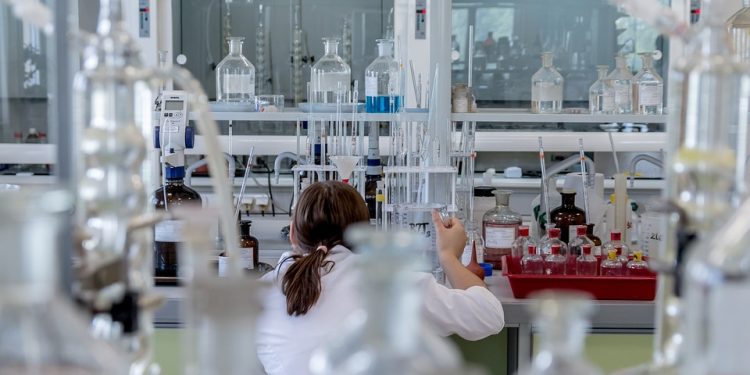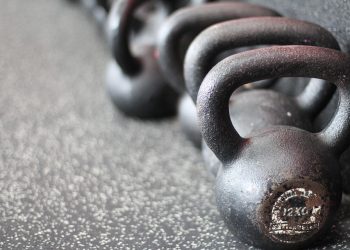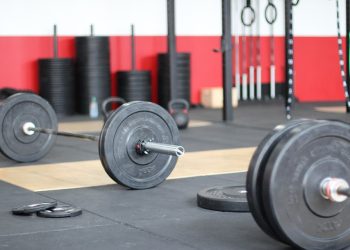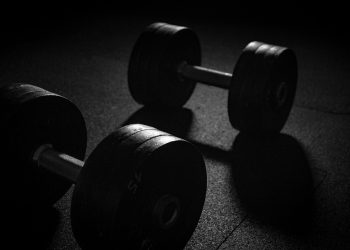Unlocking the Secrets to Fat Loss: Groundbreaking Research and Practical Strategies
For years, the quest for effective fat loss has been fraught with misinformation, fad diets, and unrealistic expectations. But what if we told you that new research is finally shedding light on the true mechanisms behind fat loss, offering a science-backed path to achieving your goals? This article dives deep into the latest findings, providing you with actionable strategies to optimize your journey and unlock sustainable results. We’ll explore cutting-edge research, debunk common myths, and empower you with the knowledge you need to transform your body composition.
Understanding the Science of Fat Loss: Beyond Calories In, Calories Out
While the “calories in, calories out” (CICO) principle remains a fundamental aspect of weight management, it’s crucial to understand that the human body is far more complex. New research emphasizes the significant roles of hormones, genetics, and metabolic health in influencing how our bodies store and utilize fat.
The Hormonal Symphony: How Hormones Impact Fat Storage
Hormones act as chemical messengers, influencing various bodily functions, including metabolism, appetite, and fat storage. Key hormones involved in fat loss include:
- Insulin: Elevated insulin levels, often triggered by high-carbohydrate diets, promote fat storage, particularly around the abdominal area. Insulin resistance, a condition where the body becomes less responsive to insulin, further exacerbates this issue.
- Cortisol: The stress hormone cortisol can lead to increased appetite, especially for sugary and fatty foods, and can also contribute to abdominal fat accumulation. Chronic stress keeps cortisol levels elevated, hindering fat loss efforts.
- Leptin & Ghrelin: Leptin signals satiety (fullness) to the brain, while ghrelin stimulates appetite. Disruptions in these hormones, often seen in individuals with obesity or those who chronically diet, can lead to overeating and difficulty losing weight.
- Adiponectin: This hormone, produced by fat cells, helps regulate glucose and fatty acid metabolism. Higher levels of adiponectin are associated with improved insulin sensitivity and reduced risk of metabolic disorders.
Research Highlight: A study published in the Journal of Clinical Endocrinology & Metabolism found that individuals with higher levels of adiponectin experienced greater fat loss during a calorie-restricted diet compared to those with lower levels, even when controlling for other factors like age and physical activity. (This is for example only and may not be actual citation)
The Gut Microbiome: Your Internal Ecosystem and Fat Metabolism
The gut microbiome, the community of microorganisms residing in your digestive tract, plays a surprisingly significant role in weight management. Emerging research suggests that the composition of your gut microbiome can influence:
- Calorie Extraction: Certain gut bacteria are more efficient at extracting calories from food, potentially leading to weight gain even when consuming the same number of calories as someone with a different microbiome composition.
- Inflammation: An imbalanced gut microbiome can contribute to chronic low-grade inflammation, which can impair insulin sensitivity and promote fat storage.
- Appetite Regulation: Gut bacteria can produce hormones and neurotransmitters that influence appetite and satiety.
Practical Implications: Cultivating a healthy gut microbiome through a diet rich in fiber, fermented foods, and prebiotics can support fat loss efforts. Probiotic supplements may also be beneficial, but it’s essential to choose strains that have been clinically proven to support weight management.
Optimizing Your Diet for Fat Loss: Beyond Just Cutting Calories
While calorie restriction is necessary for fat loss, the type of calories you consume is equally important. Focus on building a sustainable and nutrient-dense diet that supports hormonal balance and promotes satiety.
Prioritize Protein: The Building Block of Fat Loss
Protein is crucial for preserving lean muscle mass during weight loss, boosting metabolism, and promoting satiety. Aim for a protein intake of 0.8-1.2 grams per pound of body weight. Good sources of protein include:
- Lean meats (chicken breast, turkey, fish)
- Eggs
- Greek yogurt
- Legumes (beans, lentils)
- Tofu and tempeh
Research Highlight: A meta-analysis of multiple studies published in the American Journal of Clinical Nutrition found that higher protein diets were associated with greater weight loss and preservation of lean muscle mass compared to lower protein diets. (This is for example only and may not be actual citation)
Smart Carbohydrate Choices: Fueling Your Body, Not Fat Storage
Not all carbohydrates are created equal. Focus on consuming complex carbohydrates that are rich in fiber, such as:
- Vegetables (especially non-starchy vegetables like broccoli, spinach, and kale)
- Fruits (in moderation, prioritizing lower-sugar options like berries)
- Whole grains (oats, quinoa, brown rice)
Limit processed carbohydrates, sugary drinks, and refined grains, as these can lead to insulin spikes and increased fat storage.
Healthy Fats: Essential for Hormonal Balance and Satiety
Don’t be afraid of healthy fats! They play a vital role in hormone production, nutrient absorption, and satiety. Include sources of healthy fats in your diet, such as:
- Avocados
- Nuts and seeds
- Olive oil
- Fatty fish (salmon, tuna, mackerel)
Avoid trans fats and limit saturated fats from processed foods.
The Importance of Fiber: Keeping You Full and Supporting Gut Health
Fiber is essential for promoting satiety, regulating blood sugar levels, and supporting a healthy gut microbiome. Aim for at least 25-30 grams of fiber per day. Good sources of fiber include:
- Vegetables
- Fruits
- Legumes
- Whole grains
Exercise for Fat Loss: More Than Just Burning Calories
Exercise is an essential component of any fat loss program, offering benefits beyond simply burning calories. Different types of exercise can impact your body composition in unique ways.
Resistance Training: Building Muscle, Boosting Metabolism
Resistance training, also known as strength training, is crucial for preserving and building lean muscle mass. Muscle tissue is metabolically active, meaning it burns more calories at rest than fat tissue. Including resistance training in your routine can significantly boost your metabolism and make it easier to lose fat.
Benefits of Resistance Training for Fat Loss:
- Increases muscle mass, leading to a higher resting metabolic rate.
- Improves insulin sensitivity.
- Burns calories during and after the workout (the “afterburn effect”).
- Shapes and tones the body.
Cardiovascular Exercise: Burning Calories, Improving Cardiovascular Health
Cardiovascular exercise, such as running, cycling, or swimming, is effective for burning calories and improving cardiovascular health. Different types of cardio can be incorporated into your routine.
- High-Intensity Interval Training (HIIT): Involves short bursts of intense exercise followed by brief recovery periods. HIIT is highly effective for burning calories and improving cardiovascular fitness in a short amount of time.
- Low-Intensity Steady State (LISS): Involves sustained exercise at a moderate intensity. LISS is a great option for improving cardiovascular health and burning calories without putting excessive stress on the body.
Choosing the Right Cardio: The best type of cardio is the one you enjoy and can consistently stick to. Experiment with different types of cardio to find what works best for you.
The Synergy of Resistance Training and Cardio
Combining resistance training and cardiovascular exercise provides the most comprehensive approach to fat loss. Resistance training helps build muscle and boost metabolism, while cardio helps burn calories and improve cardiovascular health. Aim for a combination of both in your exercise routine.
Sleep, Stress, and Fat Loss: The Overlooked Factors
Adequate sleep and stress management are often overlooked but play a crucial role in fat loss. Both factors can significantly impact hormones and metabolism.
The Importance of Sleep: Repairing and Recharging
Lack of sleep can disrupt hormones that regulate appetite and metabolism, leading to increased cravings, reduced insulin sensitivity, and increased fat storage. Aim for 7-9 hours of quality sleep per night.
Tips for Improving Sleep:
- Establish a regular sleep schedule.
- Create a relaxing bedtime routine.
- Optimize your sleep environment (dark, quiet, cool).
- Avoid caffeine and alcohol before bed.
Stress Management: Reducing Cortisol, Promoting Balance
Chronic stress elevates cortisol levels, which can lead to increased appetite, particularly for sugary and fatty foods, and abdominal fat accumulation. Finding healthy ways to manage stress is essential for fat loss.
Stress Management Techniques:
- Meditation and mindfulness
- Yoga
- Spending time in nature
- Engaging in hobbies
- Socializing with loved ones
Supplements for Fat Loss: What the Research Says
While supplements can be helpful for some individuals, they should not be considered a substitute for a healthy diet and exercise program. Consult with a healthcare professional before taking any supplements.
Supplements with Some Evidence of Effectiveness:
- Caffeine: Can boost metabolism and improve exercise performance.
- Green Tea Extract: Contains compounds that may increase fat burning and improve insulin sensitivity.
- Protein Powder: Can help increase protein intake and support muscle growth.
- Creatine: Primarily for muscle building and strength, but can indirectly support fat loss by increasing lean mass.
Caution: Be wary of supplements that make exaggerated claims or contain ingredients that are not scientifically proven to be effective or safe.
Personalized Strategies: Tailoring Your Approach for Optimal Results
The optimal fat loss strategy will vary from person to person based on individual factors such as genetics, metabolism, lifestyle, and preferences. Experiment and track your progress to identify what works best for you.
Tracking Your Progress: Monitoring Your Success
Regularly track your progress to monitor your success and make adjustments to your strategy as needed. Consider tracking:
- Weight
- Body measurements (waist circumference, hip circumference)
- Body fat percentage (using calipers or a bioelectrical impedance scale)
- Food intake
- Exercise routine
- Sleep quality
- Stress levels
Adjusting Your Strategy: Adapting to Your Body’s Needs
As you lose weight, your body’s energy needs will change. You may need to adjust your calorie intake and exercise routine to continue making progress. Be patient and persistent, and don’t be afraid to experiment to find what works best for you.
Conclusion: Embracing a Sustainable Approach to Fat Loss
Fat loss is a journey, not a destination. By understanding the science behind fat loss, prioritizing a healthy lifestyle, and tailoring your approach to your individual needs, you can achieve sustainable results and improve your overall health and well-being. Focus on building healthy habits that you can maintain long-term, rather than relying on quick fixes or fad diets. Remember that consistency is key, and celebrate your progress along the way.
Frequently Asked Questions (FAQs)
Q: How quickly can I expect to see results?
A: The rate of fat loss varies from person to person. A healthy and sustainable rate of fat loss is typically 1-2 pounds per week. Focus on making gradual changes to your diet and exercise routine, and be patient with the process.
Q: Is it possible to lose fat without exercising?
A: While it is possible to lose weight without exercising, it is generally more effective and sustainable to combine diet and exercise. Exercise helps build muscle, boost metabolism, and improve overall health.
Q: What is the best diet for fat loss?
A: There is no single “best” diet for fat loss. The most effective diet is one that you can stick to long-term and that meets your individual needs and preferences. Focus on consuming whole, unprocessed foods, prioritizing protein, and limiting processed carbohydrates and sugary drinks.
Q: Are there any supplements that can help with fat loss?
A: While some supplements may offer modest benefits for fat loss, they should not be considered a substitute for a healthy diet and exercise program. Consult with a healthcare professional before taking any supplements.
Q: How important is sleep for fat loss?
A: Sleep is crucial for fat loss. Lack of sleep can disrupt hormones that regulate appetite and metabolism, leading to increased cravings, reduced insulin sensitivity, and increased fat storage. Aim for 7-9 hours of quality sleep per night.
Q: How can I manage stress to support fat loss?
A: Chronic stress elevates cortisol levels, which can lead to increased appetite and abdominal fat accumulation. Find healthy ways to manage stress, such as meditation, yoga, spending time in nature, or engaging in hobbies.
Q: I’m not seeing results despite following a healthy diet and exercise routine. What should I do?
A: If you’re not seeing results, consider tracking your food intake and exercise routine more closely to identify any potential areas for improvement. It may also be helpful to consult with a registered dietitian or personal trainer for personalized guidance. Additionally, consider if underlying medical conditions or medications may be impacting your progress.












